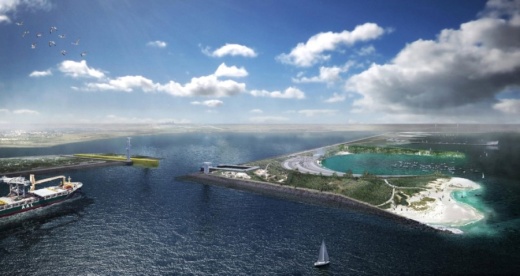Galveston Bay Park is an alternative idea to the Coastal Texas Study, a federal effort to build miles of sand dunes and sea walls along Galveston Island and beyond to minimize flooding and damage during hurricanes. According to previous reports, the park would cost $3 billion to $6 billion, be completed as early as 2025, and protect the Houston Ship Channel and petrochemical companies along the coast.
Additionally, the park would shield almost 1 million residents west of Galveston Bay from 25-foot storm surge flooding, spur economic development by supporting expanding the Houston Ship Channel, provide more public access to Galveston Bay, improve water quality and habitats for fish and birds, and not require federal funding, according to a Rice University news release.
“We’re creating something in the spirit of a national park,” said Rob Rogers, one of the plan's creators, according to the release. “But this being Texas, we don’t really need the nation to do it.”
Jim Blackburn, co-director of the Severe Storm Prediction, Education, & Evacuation from Disasters Center at Rice University, said officials are considering a variety of funding options for the massive project. The next step would be to find a local government entity to sponsor an Army Corps of Engineers study, Blackburn said in the release.
Rogers said the project could be completed far sooner than the federal Coastal Texas Study. Additionally, it would promote needed economic activity in an era of COVID-19, he said.
“This is the kind of major investment that serves multifunctional regional and national purposes,” Rogers said. “It is exactly the kind of project that makes for economic recovery.”
The plan won recognition at Houston 2020 Visions, which was created in response to Hurricane Harvey to call for sustainable ideas to promote resiliency in Houston's future planning. The contest drew more than 50 submissions, and Galveston Bay Park was among three to make the top cut, according to the release.
Galveston Bay Park and 24 other submissions will be exhibited online starting Aug. 31 at www.houston2020visions.org and in person in the fall.






